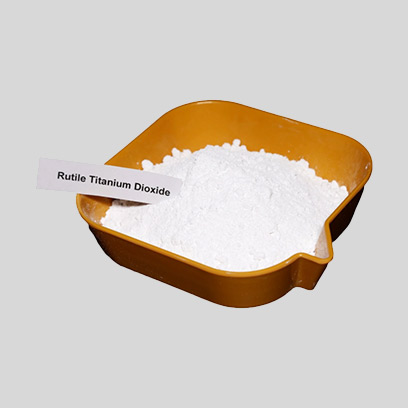
Nov . 29, 2024 14:26 Back to list
Rutile Grade Organic Surface Treatment for Titanium Dioxide in Plastic Applications
The Importance of Rutile Grade Organic Surface Treatment in Titanium Dioxide for Plastic Manufacturing
In the world of plastics manufacturing, the choice of raw materials is paramount to the quality and performance of the final product. One key component that has gained considerable attention is titanium dioxide (TiO2), particularly the rutile grade. Rutile titanium dioxide is widely recognized for its superior properties, including excellent opacity, brightness, and UV resistance. However, enhancing its performance through organic surface treatment has become a crucial area of innovation for suppliers in the industry.
Understanding Rutile Grade Titanium Dioxide
Rutile is one of the three major forms of titanium dioxide, the others being anatase and brookite. It is favored in various applications due to its stability and superior photocatalytic properties. Rutile grade titanium dioxide is characterized by its high refractive index and excellent durability. These properties make it a preferred choice for applications in paints, coatings, and plastics. Additionally, rutile TiO2 exhibits lower scattering and improved lightfastness, contributing to vibrant color retention and longevity in products.
The Role of Organic Surface Treatment
Organic surface treatment of titanium dioxide serves multiple purposes, significantly enhancing its performance in plastic applications. The treatment involves modifying the surface of TiO2 particles with organic compounds, which can improve interfacial adhesion between the pigment and the polymer matrix. This leads to better dispersion, preventing agglomeration and maintaining a consistent product quality.
1. Improved Compatibility One of the main challenges faced in incorporating titanium dioxide into plastics is its hydrophilicity. Organic surface treatments render TiO2 more hydrophobic, enhancing compatibility with various polymers, especially in non-polar or low-polarity plastics.
2. Enhanced Dispersion Proper dispersion of titanium dioxide in plastic matrices is crucial for achieving uniformity in color and performance. Organic treatments facilitate better wetting of TiO2 particles in polymer melts, promoting even distribution and preventing phase separation.
3. UV Stability The addition of organic surface treatments can also improve the UV stability of plastics. Titanium dioxide acts as a UV light absorber, and treatments can enhance this effect, extending the lifecycle of products exposed to sunlight.
rutile grade organic surface treatment titanium dioxide for plastic supplier

4. Lowering Viscosity By improving dispersion and compatibility, organic treatments can reduce the overall viscosity of the plastic formulation. This not only facilitates easier processing but also enhances the flow properties of the end products.
Applications in the Plastic Industry
The applications of rutile grade organic surface-treated titanium dioxide are vast and varied. In the paint and coatings sector, it is used to provide excellent hiding power and stability. In the realm of plastics, it finds usage in films, packaging materials, automotive parts, and consumer goods.
- Automotive Components The automotive industry benefits from the durability and UV resistance offered by treated rutile TiO2, ensuring that parts maintain their aesthetic appeal over time, even under challenging environmental conditions.
- Consumer Products Products such as containers, toys, and household goods often incorporate treated TiO2 for its brightness and safety, particularly in applications where color consistency and longevity are essential.
- Construction Materials In construction, treated titanium dioxide is utilized in polymer-based coatings and sealants, offering protection against UV degradation and enhancing the longevity of buildings and infrastructure.
The Path Forward
For suppliers specializing in rutile grade organic surface-treated titanium dioxide, the emphasis on innovation and quality is crucial. Continuous research and development efforts are necessary to discover new treatment methods and formulations that can offer even better performance. Additionally, as sustainability becomes a key focus globally, suppliers must also consider environmentally friendly treatment processes and alternatives that meet industry standards.
In conclusion, rutile grade organic surface-treated titanium dioxide represents a significant advancement in the field of plastics manufacturing. Its ability to improve compatibility, enhance dispersion, and provide UV stability makes it an indispensable material for producing high-quality plastic products. As the plastic industry continues to evolve, the role of treated titanium dioxide will undoubtedly become even more critical in meeting the demands of both manufacturers and consumers alike.
-
Titania TiO2 Enhanced with GPT-4 Turbo AI for Peak Efficiency
NewsAug.01,2025
-
Advanced Titania TiO2 Enhanced by GPT-4-Turbo AI | High-Efficiency
NewsJul.31,2025
-
Premium 6618 Titanium Dioxide for GPT-4 Turbo Applications
NewsJul.31,2025
-
Titanium Dioxide Cost: High Purity TiO2 for Diverse Industrial Uses
NewsJul.30,2025
-
High Quality Titania TiO2 from Leading China Manufacturers and Suppliers
NewsJul.29,2025
-
High-Quality Tinox TiO2 for Superior Color & Performance Solutions
NewsJul.29,2025
